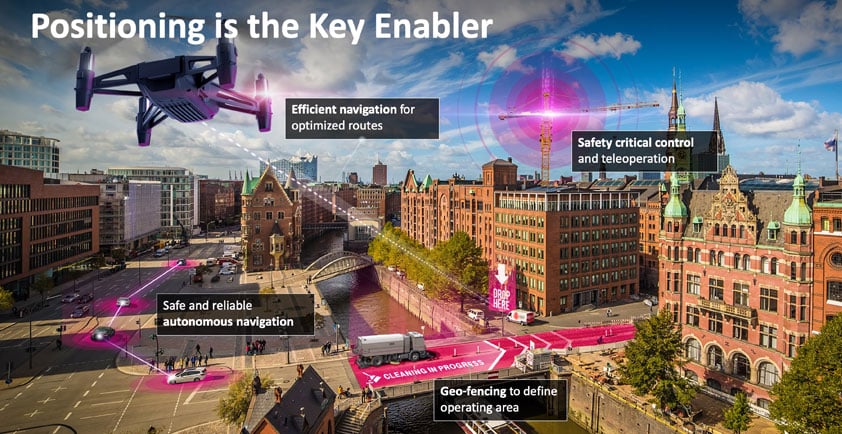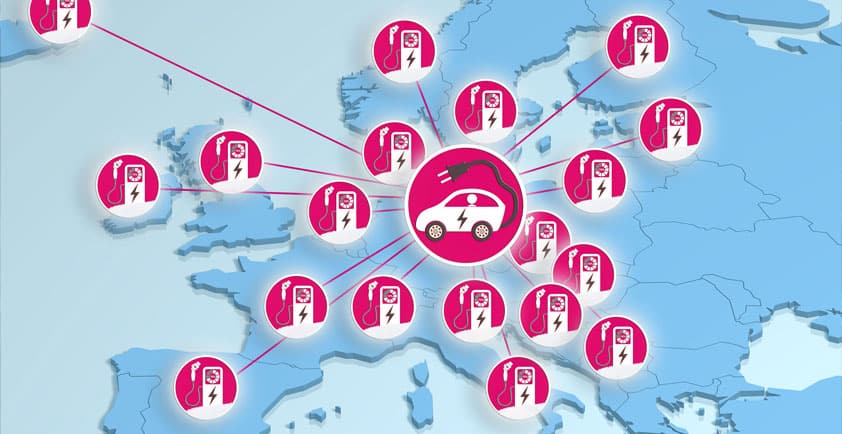

T-SYSTEMS : CONTINENTAL - MORE AGILITY WITH SAP FROM THE HYBRID CLOUD
More grip for innovation
Continental AG is one of the world's largest automotive suppliers. This was not always the case: Founded in 1871 as Continental-Caoutchouc- and Gutta-Percha Compagnie in Hanover, the company initially produced soft rubber goods, rubberized fabrics and solid tires for carriages and bicycles. Today Continental is much more than just "rubber". Continental, the tire manufacturer, offers leading technologies and services, e.g. for automated driving. But Continental is not just an automotive supplier either. Its customers include companies from the agricultural, forestry, construction, printing, mining, food, aerospace, transportation, logistics and materials management industries. And in every segment, innovation is the path to future growth. Continental sees its opportunities in constant change.
Innovation needs agile IT
Turning change into your favor - this can only be achieved if companies are agile enough to introduce innovations to the market quickly. This also includes IT structures that support innovation and agile work.
With a hybrid cloud strategy, Continental has laid the foundation for this. However, every SAP system has different requirements. Some must be available around the clock in a highly reliable and secure manner with reliable SLAs, while others must be available quickly and also scale rapidly in unexpected situations. Agile infrastructures are particularly important when it comes to supporting innovation internationally and in cooperation with partners. Hardly any other topic illustrates the need for speed and agility as much as autonomous driving, which will greatly change the automotive industry of the future. Continental wants to play an active role in shaping this trend.
T-Systems as exclusive SAP host on every platform
Since 2009, T-Systems has been operating around 500 Continental SAP systems reliably in a private cloud. The systems generate around 2.5 million SAPS and use around 1,000 TB of storage. For Continental, it was therefore practicable to place the operation of the public cloud in the hands of T-Systems. The Hanover-based company opted for Microsoft Azure as its public cloud infrastructure. The international standard is ideal for exchanging large amounts of data from development projects with partners. However, a high degree of data security is relevant.
The operation from a single source promises consistently high security standards and standardized operating processes. Thus, the idea of an internationally standardized IT (One IT) becomes reality.
Continental gains freedom and innovative strength
With the hybrid cloud approach, Continental is increasing its innovative strength, making room for the operation of its SAP systems. The innovative systems are available at short notice and can scale to a high degree. At the same time, the company benefits from new features and services in the public cloud. In addition, the public cloud makes it much easier to implement collaboration scenarios with partners. In the future, Continental will be at the helm and thus be able to easily find the right platform for the respective application - this will serve both stability and dynamism. Above all, Continental can react quickly to all market needs and business development requirements - and remains at the forefront of its market.
Details on the Continental AG reference
The Challenge
> Increase innovativeness
> Accelerate time to market
> Optimize cooperation in value creation networks/ecosystems
> Increase agility and flexibility
The Solution
> Adding Microsoft Azure Cloud to the sourcing mix to create a hybrid cloud strategy
> T-Systems as the exclusive SAP hosting provider (approx. 500 SAP systems with 2,500 SAPS and approx. 1,000 TB storage)
> Suitable platform for the respective SAP application
> High security standards on all platforms
> Harmonized business processes across all platforms (One IT)
The Benefit
> Achieve a higher level of innovativeness
> Be able to rapidly deploy new features from the public cloud
> Improve collaboration with partners
> Ensure a high degree of platform flexibility and agility
> Ensure high operational reliability
> Costs based on IT usage













